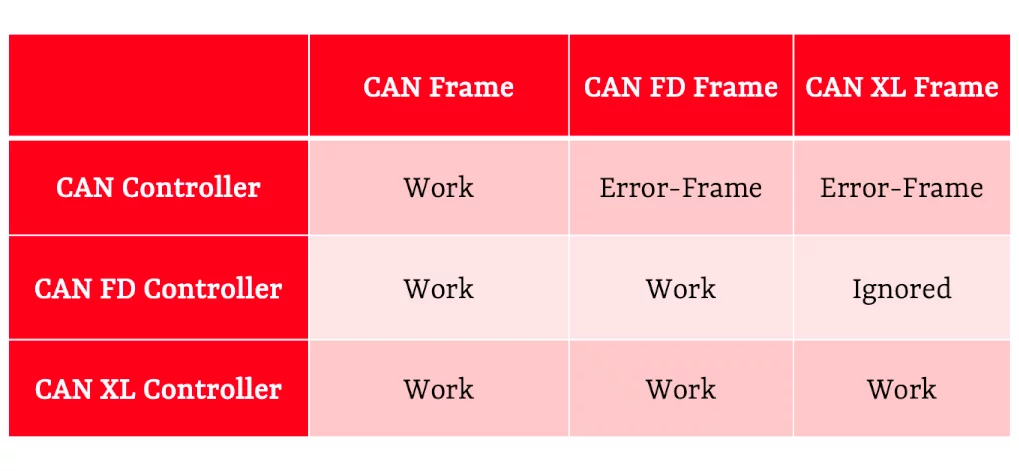CAN XL: The Next Generation of CAN
Controller Area Network Extra Long (CAN XL), developed by CAN in Automation’s CiA Special Interest Group CAN XL, is an addition to the CAN protocol as specified in ISO 11898-1 which aims to further increase the bandwidth capabilities of CAN to over 10Mbit/s. This latest evolution in CAN further increases the possibilities for signal-based communication buses in response to the needs of the electric vehicle and autonomous industries. STMicroelectronics and Texas Instrument are among the companies already working to support CAN XL at this time.

Higher speeds, greater potential
Higher bitrates can come at the cost of signal clarity which is why the Special Interest Group have devised the CAN XL Signal Improvement Capability (SIC) Transceiver. With this solution in place, CAN XL is able to bring new features to CAN communication such as now supporting payloads large enough to allow tunneling of ethernet traffic, known as “ethernet tunneling.” CAN XL will also add the ability to mix multiple higher layer protocols on the same bus. And it will do all of this with the reliability CAN is known for.
Backwards compatibility comes first
Like CAN FD before it, CAN XL is backwards compatible with CAN FD, allowing access to both CAN FD and Classical CAN protocols. While a CAN FD node cannot receive a CAN XL message, the node will not detect an error and will join arbitration on the next frame making it possible to use both CAN FD and CAN XL on the same bus. This is accomplished by taking advantage of CAN FD’s Protocol Exception State. This occurs when the recessive XLF bit of a CAN XL message sets the CAN FD node into the Protocol Exception State, a safeguard for future expansions introduced in the CAN FD specification, ISO 11898-1:2015.

Kvaser and CAN XL
CAN XL is standardized in ISO 11898-1:2024. Kvaser is currently developing our own CAN XL IP core with more information to be available in the near future.
More Resources
CAN XL Newsletter
Attendees learned about this in our newsletter, sign up here to get the latest updates.
"*" indicates required fields